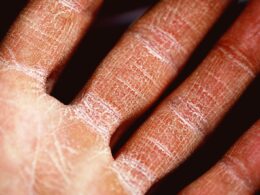Pain in the female external genital organs (the vulva) can have many causes. Describe the pain in detail, as it can help your doctor identify the cause and prescribe the right treatment.
A feeling of heaviness or fullness in the pelvic area may be caused by a prolapse. This can feel like something slipping out of the vagina or other pelvic organs, such as the kidneys or the urethra.
Vaginal gas
Vaginal gas is a common condition that happens when air becomes trapped in the pelvic area. It can be uncomfortable and embarrassing, but it is usually not a serious health concern. Vaginal gas is often caused by sexual activity, stretching exercises like yoga, and certain medical conditions. In rare cases, vaginal gas can be a symptom of a condition called vulvodynia, which involves pain in the vulva for no apparent reason.
There is always some air in the vagina, but when larger pockets or bubbles get stuck they slowly squeak out and create a sound similar to farting from the rectum. This is also known as vaginal flatulence, vart, or queefing. It can happen any time something is inserted into the vagina, including during or after sex, exercise, using a tampon, and changing sexual positions.
Vaginal gas can also be caused by a herniated organ or by certain medical conditions like Crohn’s disease and ulcerative colitis. It can also be a sign of a condition called a fistula, which is an abnormal opening that connects two organs. A rectovaginal fistula is most often created during childbirth, but can be caused by pelvic surgery, radiation treatments around the pelvis for cancer, or from diseases like Crohn’s and ulcerative colitis.
Bacterial vaginosis
Bacterial vaginosis is an overgrowth of bacteria that can cause vaginal discharge with a fishy odor. It can be a problem for women of all ages, but it is most common in women of childbearing age. Symptoms include white or gray discharge with a fishy smell, itching, and burning during urination. This condition can also cause pelvic pain and tenderness, especially if it is not treated.
A health care provider can diagnose bacterial vaginosis by doing a pelvic exam. The health care provider will use a plastic tool called a speculum to widen the cervix and look for signs of infection. They will also ask for a sample of your vaginal fluid. The sample will be sent to a lab for testing.
A health care provider can treat bacterial vaginosis with antibiotics. They may prescribe pills to take by mouth or a gel or cream to put in the vagina. It is important to follow the instructions for taking these medications. They can kill off good bacteria, so it is important to eat foods that are rich in probiotics, such as yogurt and garlic.
Genital herpes
Genital herpes is an infection caused by the herpes simplex virus (HSV). It can cause sores in and around the genital area. You can get genital herpes from vaginal, oral or anal sex. You can also get it from skin to skin contact. You can pass the herpes virus to others even when you have no sores. It is very common for people to have herpes and not know it.
Symptoms of herpes include itching, tingling, and painful blisters that ooze or bleed. The first outbreak usually has the most severe symptoms. After that, symptoms may be milder and less frequent.
There is no cure for herpes, but antiviral medicine can reduce the severity and duration of outbreaks. Some women find that sitting in warm water (a sitz bath) helps relieve pain during an outbreak. Using unscented lubricant can help with vaginal dryness. Many people with herpes can also suffer from a condition called pelvic prolapse. This happens when the muscles and ligaments supporting the pelvic bones become weak or tear. This can be caused by childbirth, surgery, long-term constipation and more.
Groin infections
Groin infections are painful and uncomfortable, but they can usually be treated at home. Many minor muscular injuries can cause pain in the groin, and these can often be treated with over-the-counter medications. However, if your groin pain persists, you should see a doctor.
Cellulitis can develop anywhere on the body, and it can also affect your groin area. The standard treatment for cellulitis is oral antibiotics, which can help kill the bacteria causing the infection. It’s important to wash any wounds in the groin with soap and water, and to keep them covered until they’ve completely healed. It’s also important to avoid soaking your groin in hot tubs or natural bodies of water, since this can increase your risk of developing an infection.
Fungus infections can also occur in the groin, especially if you’re wearing tight clothes that rub against your skin. The skin in the groin is usually warm and moist, which provides ideal growth conditions for fungi. It’s also possible to get a groin fungal infection if you’re taking medications that weaken your immune system.









